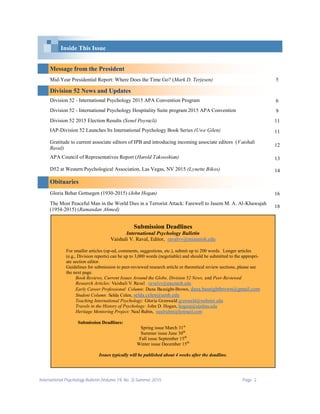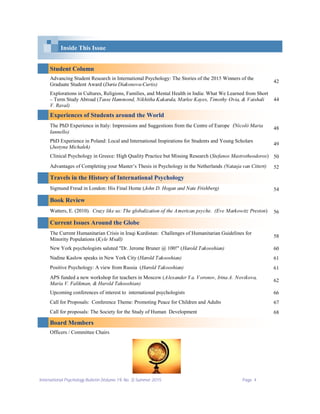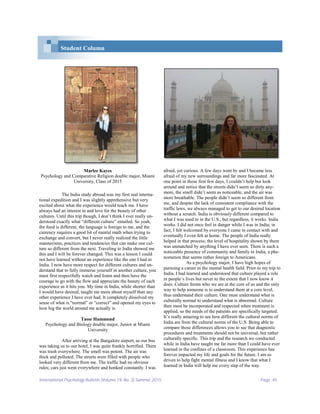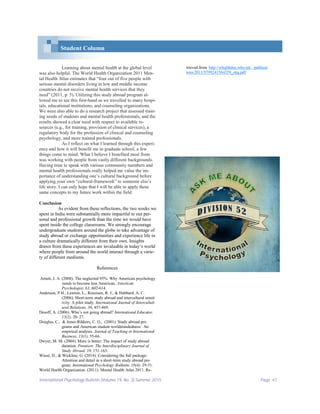This document is the Summer 2015 issue of the International Psychology Bulletin, which is published by Division 52 (International Psychology) of the American Psychological Association. It contains the following sections:
- A message from the Division 52 president and updates on Division activities.
- Obituaries for two notable figures in the field of international psychology.
- Reports on psychology events at the United Nations and other international conferences.
- Two peer-reviewed research articles on topics related to international psychology.
- Columns for early career professionals, students, teaching international psychology, and the history of psychology.
- Book reviews, news from around the world, and information on upcoming conferences in the field.
![Editor
Vaishali V. Raval
Outgoing Associate Editors
Harold Takooshian
Richard Velayo
Incoming Associate Editors
Radosveta Dimitrova
Genomary Krigbaum
Volume 19 No. 3 Summer 2015
Official Bulletin of the Division of International Psychology [Division 52 of the American Psychological Association]
div52.org
INTERNATIONAL
PSYCHOLOGY BULLETIN](https://image.slidesharecdn.com/95efe2fc-cec6-4891-a325-e1b43b6fd040-160816144446/85/Hammond_et_al_IPB_Summer_2015-1-1-320.jpg)






